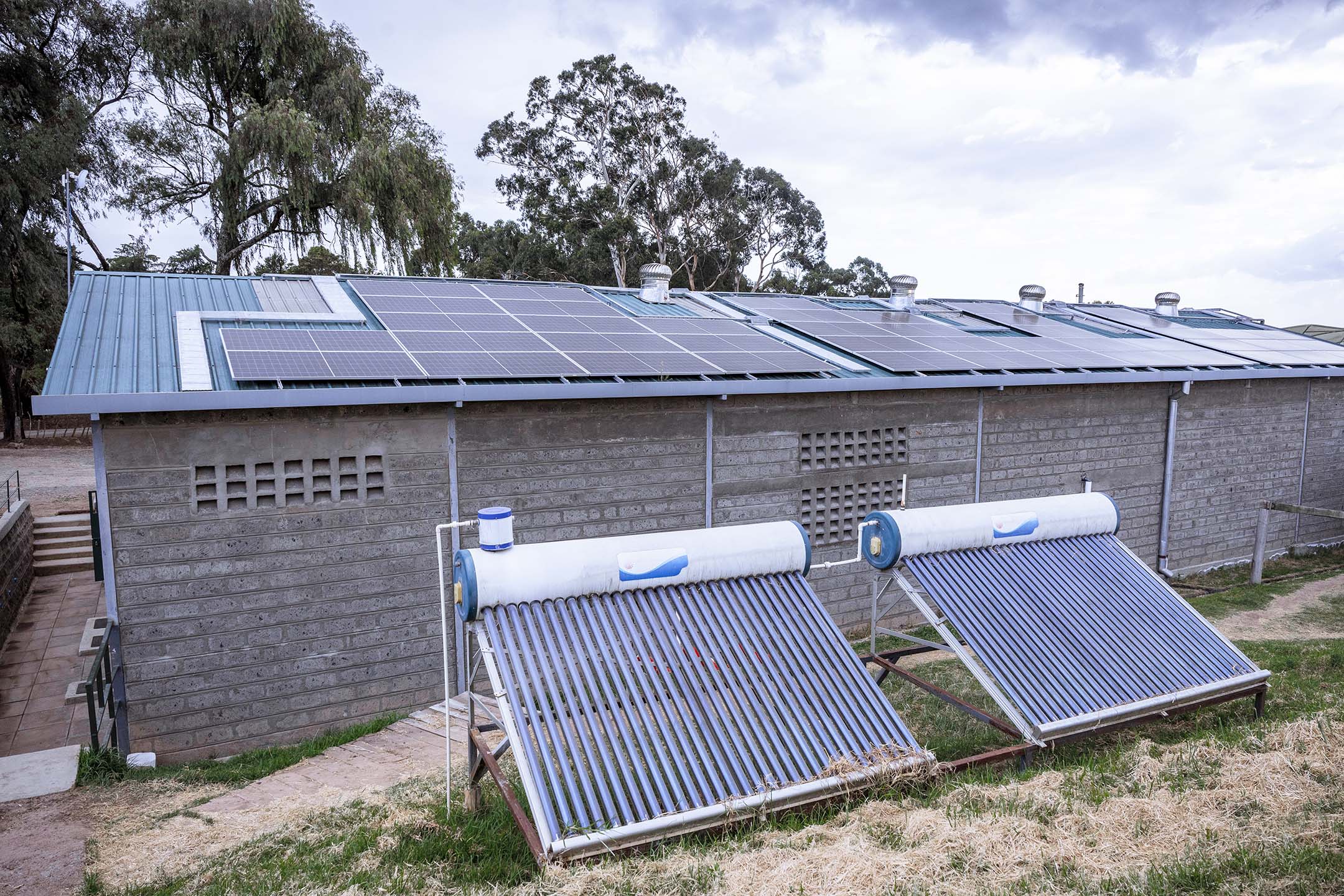
Powering a Safer Future Through Renewable Energy
The Rift Valley Roses Floating Solar Project is a pioneering renewable energy initiative, bringing sustainable, clean energy to one of Kenya’s most vibrant agricultural enterprises. Designed to meet the energy demands of Rift Valley Roses, this floating solar system not only powers daily operations but also demonstrates a strong commitment to reducing environmental impact and supporting sustainable growth.
Key Benefits
Solar Water Heaters increases water heating efficiency.
Power Generation and Output
Our Solar Power Output:
- Daily: 727 kWh
- Monthly Average: 22,100 kWh
- Annually: 265,355 kWh
The output from this floating solar system provides substantial energy savings while reducing strain on Kenya’s energy grid, proving that sustainable energy solutions can effectively meet large-scale agricultural demands.

Carbon Emission Reduction Impact
In Kenya, the standard carbon emission index is set at 0.487. The Rift Valley Roses Floating Solar Project will save an estimated 129.23 tons of Carbon (CO₂) annually. With a lifespan of 25 years, this project is projected to offset over 3230.7 tons of Carbon (CO₂) emissions, marking a significant stride in mitigating climate impact.
A Long-Term Vision for Sustainable Growth
This 25-year commitment to renewable energy is a testament to Rift Valley Roses’ vision of a sustainable and resilient future, setting a benchmark for green energy initiatives in the region. As Rift Valley Roses continues to flourish, the Floating Solar Project will ensure that this growth is powered sustainably, efficiently, and responsibly.
